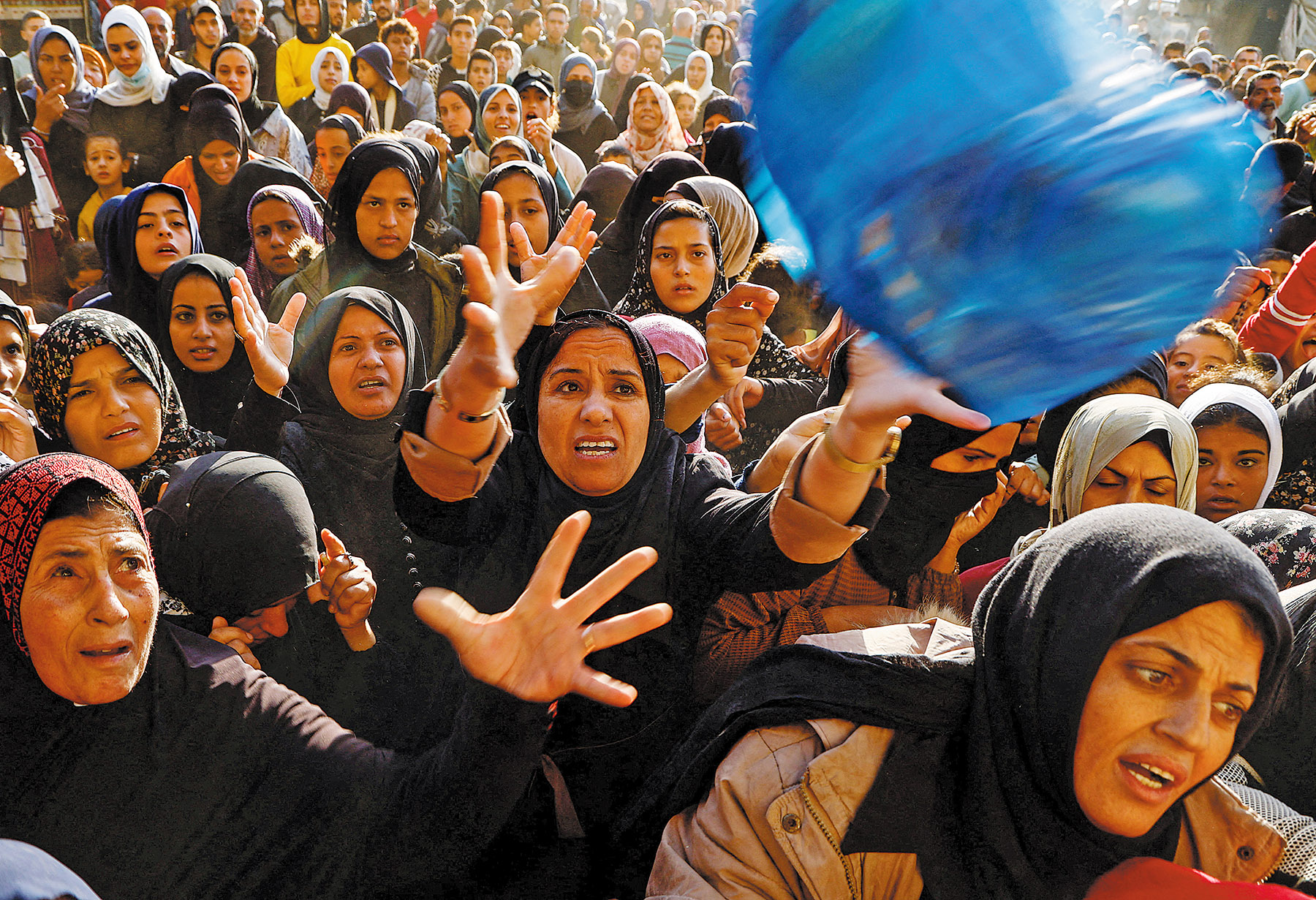WFP calls for greater access to conflict zone after Israel bans UN relief agency

The United Nations food agency has warned that the dire humanitarian crisis in Gaza could escalate into famine and has appealed for more secure and functional entry points into the war-torn area to enable much-needed aid to flow in.
The renewed alarm came just a day after the Israeli parliament, or Knesset, approved new legislation banning the UN Relief and Works Agency for Palestine Refugees in the Near East (UNRWA), and two weeks after the Integrated Food Security Phase Classification projected that 1.95 million people in Gaza (91 percent of the population) would face acute food insecurity.
Amnesty International has criticized Israel’s legislation as “criminalization of humanitarian aid”.
Restrictions on humanitarian aid coming into Gaza are severe. In October, only 5,000 metric tons of food were delivered into Gaza, amounting to just 20 percent of basic food assistance for the 1.1 million people who depend on the UN World Food Programme’s (WFP) lifesaving support.
The WFP said it currently has approximately 94,000 metric tons of food — enough to feed 1 million people for four months — ready to go to Gaza, with 46,596 metric tons positioned in Ashdod port, Egypt and Jordan. It stands ready to bring the urgently needed supplies but needs “more border crossing points to be open and for them to be secure”.
The crossing points in question include Kissufim, which would support operations south of Gaza with direct access to Deir el-Balah; Karni Crossing, which has yet to be opened as a depot/platform to enable dispatches to the north and south, particularly to serve Gaza City effectively.
Zikim or Erez are also included as these crossing points are alternating, with only one crossing opening at a time. Both crossings should be open simultaneously to double the potential throughput, the WFP said, while Kerem Shalom or Gate 96 route, though currently operational as a crossing point or platform to support operations in the south and north, requires critical improvements to the security environment to permit safe passage of aid.
The WFP also reiterated that the UNRWA “is indispensable” in providing lifesaving aid and social services in Gaza.
UN Secretary-General Antonio Guterres sent a letter to Israeli Prime Minister Benjamin Netayahu, according to Stephane Dujarric, spokesperson for the UN chief.
Guterres outlined in the letter “the issues of international law that have been raised” by the new Israeli legislation.
Separately, UNRWA Commissioner-General Philippe Lazzarini has written to the president of the UN General Assembly calling for “decisive intervention” to help the UNRWA carry out its mandate in the occupied Palestinian territory.
Lazzarini noted that the rules-based international order “is crumbling in a repetition of the horrors that led to the establishment of the United Nations, and in violation of commitments to prevent their recurrence”, Al Jazeera reported.
Abdalfatah Asqool, a former international law lecturer at the University of Palestine, told China Daily that it is obvious that Israel is “using hunger as a weapon against civilians in the Gaza Strip”.
He also blamed the international community for its silence, which he said had enabled Israel to press on and attack UN agencies.
In September, the UN General Assembly passed a historic resolution demanding that Israel bring to an end its unlawful presence in the Occupied Palestinian Territory within 12 months.
Meanwhile, Jordan on Oct 29 called for an emergency meeting of the Arab League to discuss a unified Arab response to Israel’s UNRWA ban, the Jordan Times reported.
On the same day, Norway said it would seek clarification from the UN on Israel’s obligations under international law.
“‘With this initiative, Norway aims to affirm that no country, including Israel, is exempt from its international legal obligations. We observe similar trends in other countries, where leaders are attempting to undermine international humanitarian law and delivery of assistance in situations of crisis and conflict. This development must be stopped,” said Norwegian Foreign Minister Espen Barth Eide.


